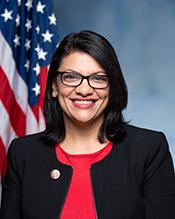0
PALS Act
12/31/2022, 5:05 AM
Summary of Bill HR 4612
The PALS Act aims to improve the quality of care for pediatric patients by ensuring that healthcare providers have the necessary training and resources to effectively respond to medical emergencies involving children. The bill includes provisions for funding the PALS program, as well as for expanding access to training and certification for healthcare providers.
Additionally, the PALS Act seeks to increase awareness of the importance of pediatric advanced life support and to encourage healthcare facilities to prioritize the training of their staff in this area. By investing in the PALS program, supporters of the bill believe that the overall quality of care for pediatric patients will be improved, leading to better outcomes and potentially saving lives. Overall, the PALS Act is a bipartisan effort to enhance the level of care provided to children in medical emergencies by supporting the training and certification of healthcare providers in pediatric advanced life support. If passed, this legislation has the potential to make a significant impact on the healthcare system and the well-being of pediatric patients across the country.
Congressional Summary of HR 4612
Protecting Access to Lifesaving Screenings Act of 2021 or the PALS Act
This bill makes a series of changes relating to health insurance coverage of screening mammography.
Specifically, the bill requires that any provision of law referring to current recommendations of the U.S. Preventive Services Task Force (USPSTF) with respect to breast cancer screening mammography be administered as if (1) the provision referred to USPSTF recommendations last issued before 2009; and (2) those recommendations applied to any screening mammography modality, including any digital modality of such a procedure. This requirement shall also apply to the Veterans Health Administration's policy on mammography screening for veterans.
In addition, the bill preserves Medicare coverage for screening mammography, without a requirement for coinsurance, and expands the definition of screening mammography to include any digital modality of such a procedure. Further, the Centers for Medicare & Medicaid Services may not decrease the frequency with which screening mammography may be paid by Medicare for a woman over 39 years of age.
In 2009, the USPSTF updated its guidelines to recommend against routine screening mammography for women between 40 to 49 years of age and to recommend biennial, instead of annual, screening mammography for most women between 50 to 74 years of age. In 2015, through the appropriations process, a three-year moratorium was placed on implementing the guidelines; the moratorium was subsequently renewed until January 1, 2023.





